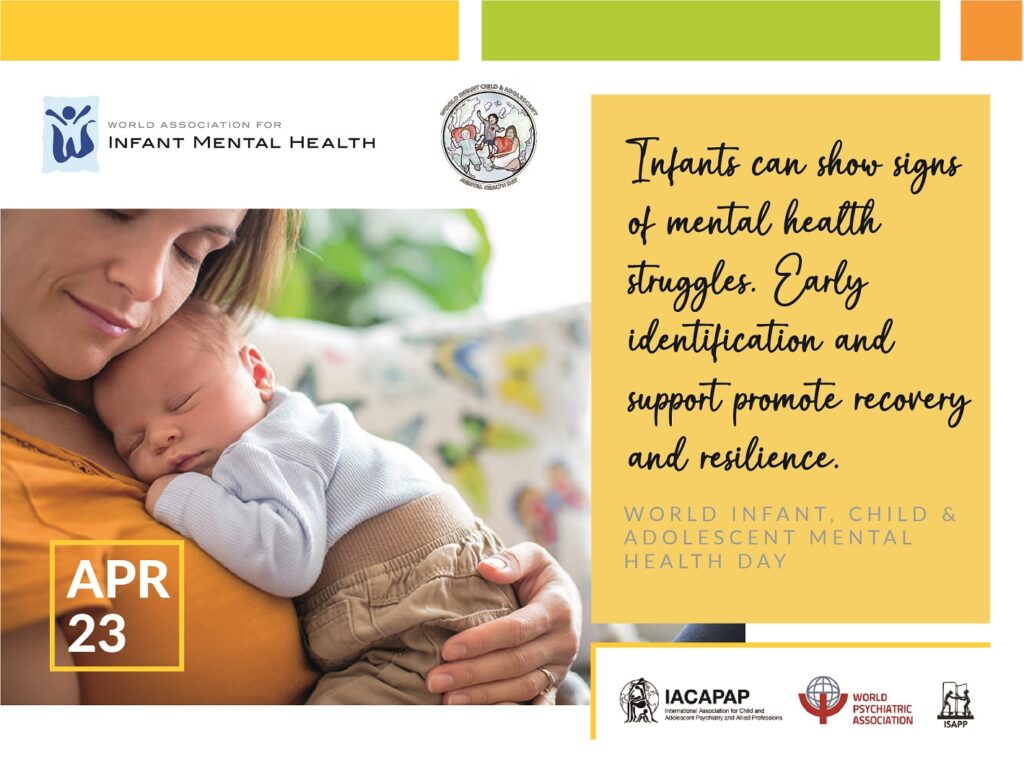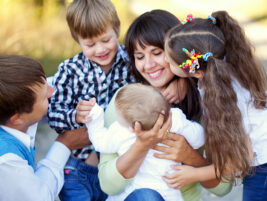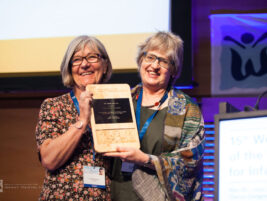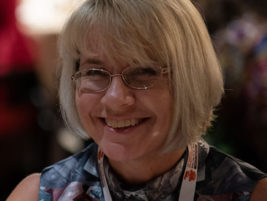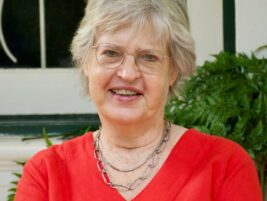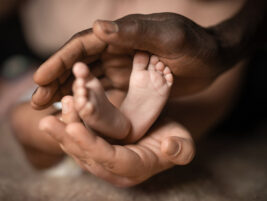Introduction
WAIMH collaborated with several other global associations on child mental health and initiated the World Infant, Child and Adolescent Mental Health Day (WICAMHD). The aims are to recognize the global importance of infant, child, and adolescent mental health, and to advocate for the promotion of mental health and prevention of mental illness in infants, children and adolescents worldwide. See here: World Infant, Child and Adolescent Mental Health Day – Events – IACAPAP

The webinar, on 28th April 2023 started with opening remarks by IACAPAP President Professor Luis Augusto Rhode and Dr Daniel Fung. Dr Fung provided thoughts about the importance of trauma with presenting items causing mental ill health globally.
War in Ukraine
Dennis Ougrin, working as a consultant Child and Adolescent Psychiatrist (MBBS, MRCPsych, PGDip (Oxon), PGCAPHE, PhD), described the cultural background of Ukraine and the challenges caused by the Russian invasion. There have been challenges in access to treatment, and barriers to care include stigma, fear, costs, and unwillingness to access treatment. There has been an increased number of suicides in Ukraine after the 2014 Crimean occupation by Russia. The Ukrainian healthcare system has developed inpatient psychiatric care (which covers 89% of the costs of mental health services) and community treatment is thus less developed. In addition, child psychiatry has been underfunded.
Since the war started, a massive movement of people has arisen, and Russia has been targeting health care and mental health facilities. For example, in Kyiv and Eastern Ukraine. By 28th April 2023, 461 children have been killed (according to the UN), but the real amount is significantly higher. The Pan-European Mental Health Coalition has initiated trauma work and digital mental health work, and they utilize RUCKSACK, a therapeutic book, for describing children moving from Ukraine to the UK. The book was illustrated by a person from Zapporijha. Ukraine also utilizes some resources such as a “Magical Gold Key” intervention, and materials developed by the Children & War Foundation, during the Balkan War. 524 persons have been trained to deliver groups in Ukraine. Mainly girls have participated in these so far.
Earthquake in Turkey
Füsun Çetin Çuhadaroğlu, MD and Professor of Child and Adolescent Psychiatry at Hacettepe University Faculty of Medicine (Ankara, Turkey), expressed worries about the earthquakes and aftershocks in Turkey in the spring of 2023. He was worried about the traumatization of children and adolescents on multiple levels. The effects are unimaginable after more than 45,0000 were killed, with 1.25 million homeless, and 20,000 disabled persons with injuries, including many children and adolescents, with physical and mental health problems. Five million children living in the five provinces are affected by the earthquake; the amount of children orphaned is enormous. Children lost family members, their health (limbs), lost their reason for living. The local region structure and the local economy have been destroyed. There were hundreds of unidentified children aged 0-2, who were handed to families through DNA tests, with many other children taken into care. Children may have lost their names, body parts, as well as their family members, relatives, homes, toys, possessions, schools, and friends.
The Turkish Association for Child and Adolescent Psychiatry provided support with 150 members volunteering during the 1st week, with professionals working online 24/7, with an online system for immediate mental health support and distributing a brochure “Handling children in disasters”. The Ministry of Health organized logistics, including travelling and safety for the teams. The professionals within mental health also arranged seminars for professionals.
The psychological reactions of infants in trauma are excessive irritability, difficulty calming down, crying more, and changing their eating and sleeping habits. The smallest children are affected mainly by the reaction of their parents or other adults around them. Toddlers may suffer from regressive behavior, weeping more, excessive clinging and the fear of being alone, a sensitivity to loud noises, irritability, hyperactivity, eating and sleeping problems, and new fears.
HOW TO HELP THE CHILDREN:
- Create for young children the feeling of safety, security, being free from harm, and not being left alone when they are distressed
- To be available, when children want to speak or ask questions
- Taking into account the child’s age, the emotional and developmental age –understanding of the child, using such words
- Let children express feelings, with play and art, let them explore, and resolve anxieties by playing and drawing
New framing is necessary within families and communities, by using the child’s own words, since many kinds of misinformation and misconceptions may have developed. The families need education to provide explanations with basic accurate information, need help to avoid providing young children with too many details and minimize their exposure to media coverage. The adults and other caring adults will need support, as many are highly traumatized which can make it extra challenging for them to also support their children.
Child abuse in the United States
Michelle Miller, a Social Worker, Director PhD, LCSW, LCPC in Mental Health Programs, National Children’s Alliance (NCA) (United States) spoke about Child Victims of Trauma. There are 5 child fatalities daily in the United States, with 34 million having experienced at least one type of childhood trauma, nearly 50% of children.
Evidence-Based Mental Health Responses have been developed in NCA chapters located in every state to ensure the right time and right dose of intervention for children and families. They have been training professionals and have created a coordinated and multidisciplinary approach to child abuse. They estimate that 75% of children can benefit from the interventions.
Way forward
In the Panel discussion Assoc Prof Campbell Paul, President of the World Association for Infant Mental Health (WAIMH) suggested ensuring listening to the infant, the infants’ way of speaking without words, as infants are vulnerable to experience trauma, and this may not be recognized. Infants are best helped alongside their perinatal caregiver.
Campbell Paul expressed the need for collaborating, with UNICEF and WHO, to tackle the immensity of the problems worldwide, with more refugees, more displacement than ever, and the need of making resources available to professionals who do not have specified mental health training.
Dr Norbert Skokauskas, President of the World Psychiatric Association Child and Adolescent Psychiatry Section (WPA-CAP) suggested to emphasize resilience and post-traumatic growth. Dr Luis Augusto Rhode suggested developing an international centre, which can intervene, and the need to create the conditions to deliver evidence-based interventions in times of violence and trauma.
#WICAMHD #WICAMHD2023 #childtrauma #adolescenttrauma #infanttrauma #IACAPAP #WAIMH #IMH
Authors
Minna Sorsa,
Senior Administrator,
WAIMH Central Office


